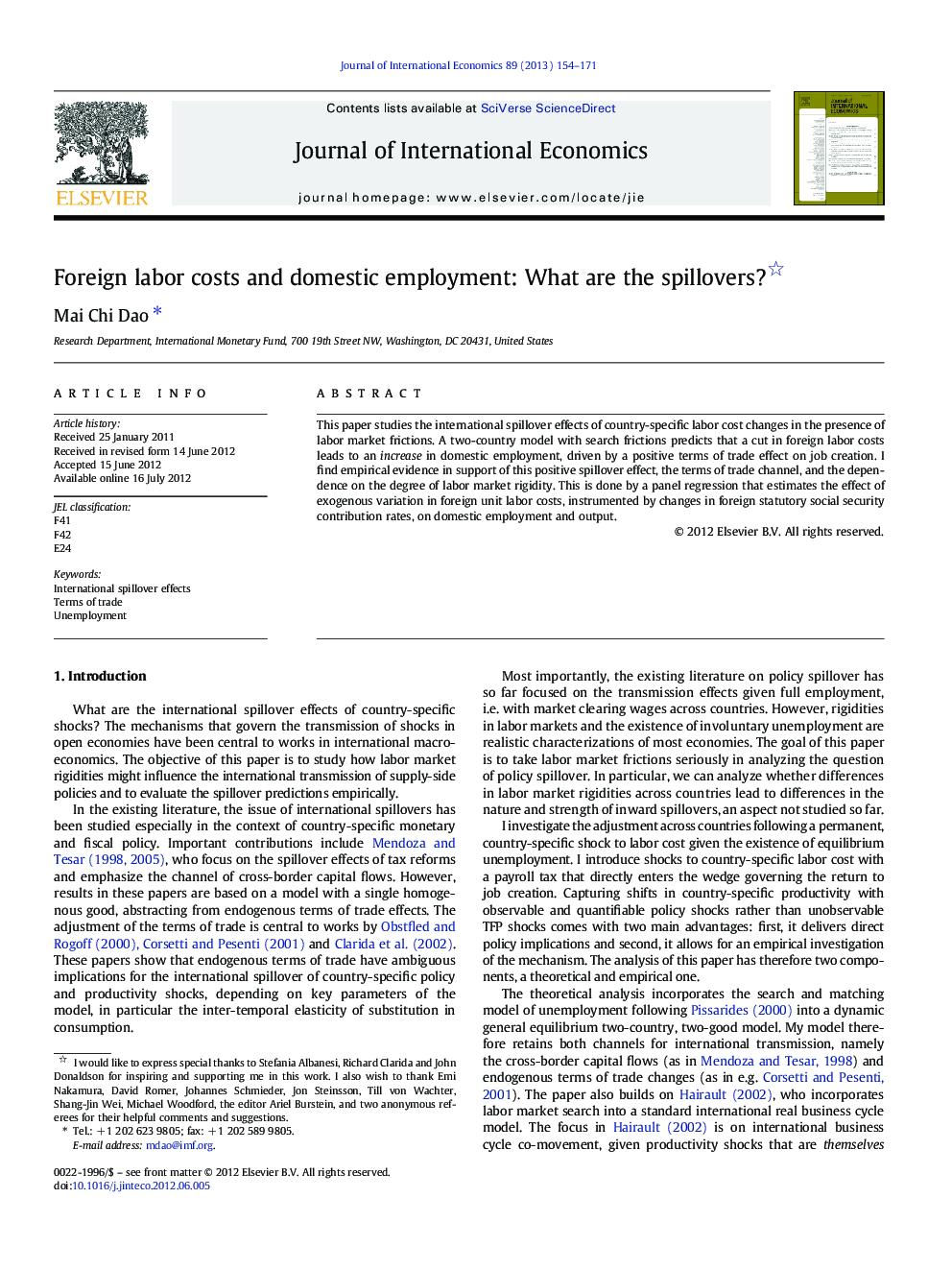| Article ID | Journal | Published Year | Pages | File Type |
|---|---|---|---|---|
| 962984 | Journal of International Economics | 2013 | 18 Pages |
This paper studies the international spillover effects of country-specific labor cost changes in the presence of labor market frictions. A two-country model with search frictions predicts that a cut in foreign labor costs leads to an increase in domestic employment, driven by a positive terms of trade effect on job creation. I find empirical evidence in support of this positive spillover effect, the terms of trade channel, and the dependence on the degree of labor market rigidity. This is done by a panel regression that estimates the effect of exogenous variation in foreign unit labor costs, instrumented by changes in foreign statutory social security contribution rates, on domestic employment and output.
► I analyze spillovers from foreign labor costs in a 2-country model with search frictions. ► A fall in foreign labor costs increases domestic employment and output. ► Magnitude of spillover depends positively on the degree of frictions. ► The implications for spillover are tested using a panel of OECD countries. ► Estimates, including 2SLS with statutory tax rates, confirm that spillovers are positive.
